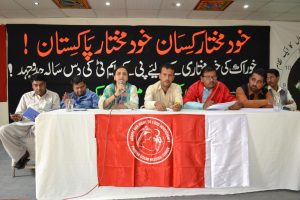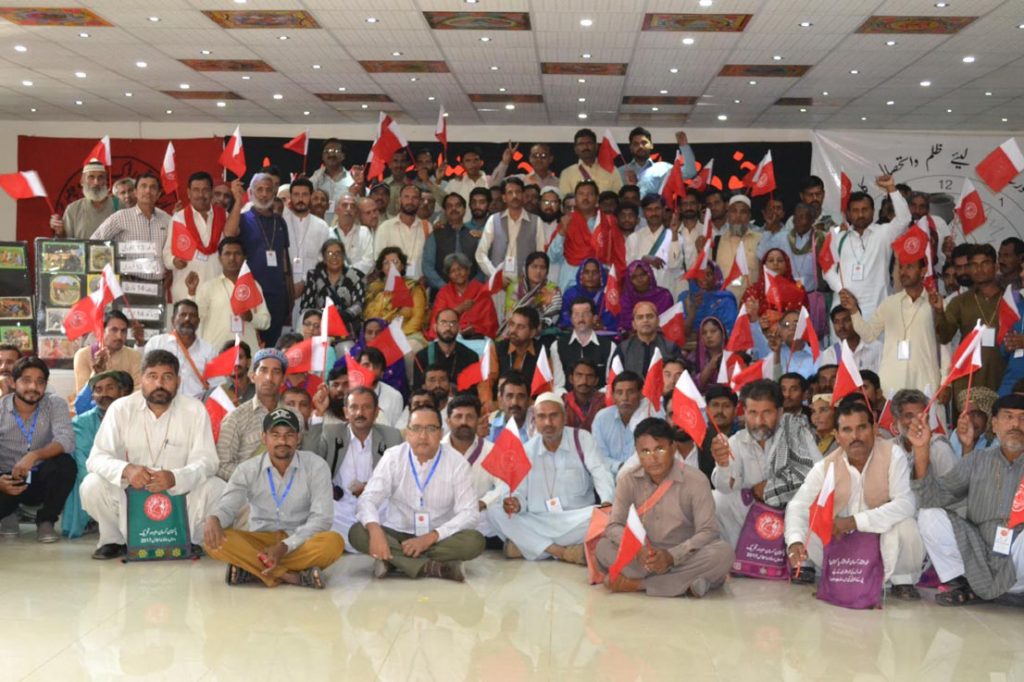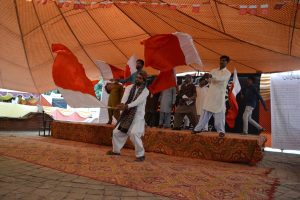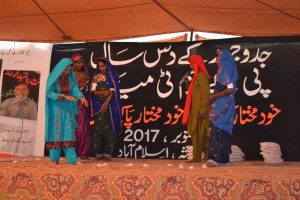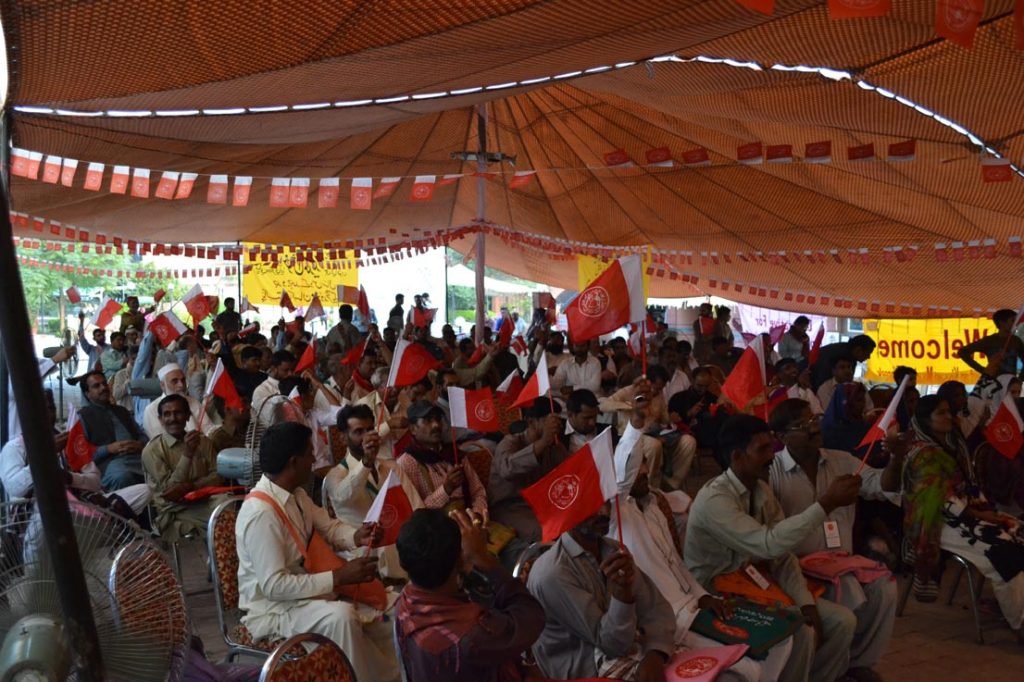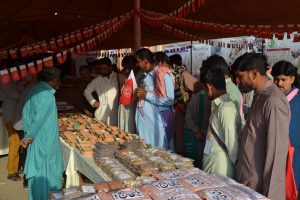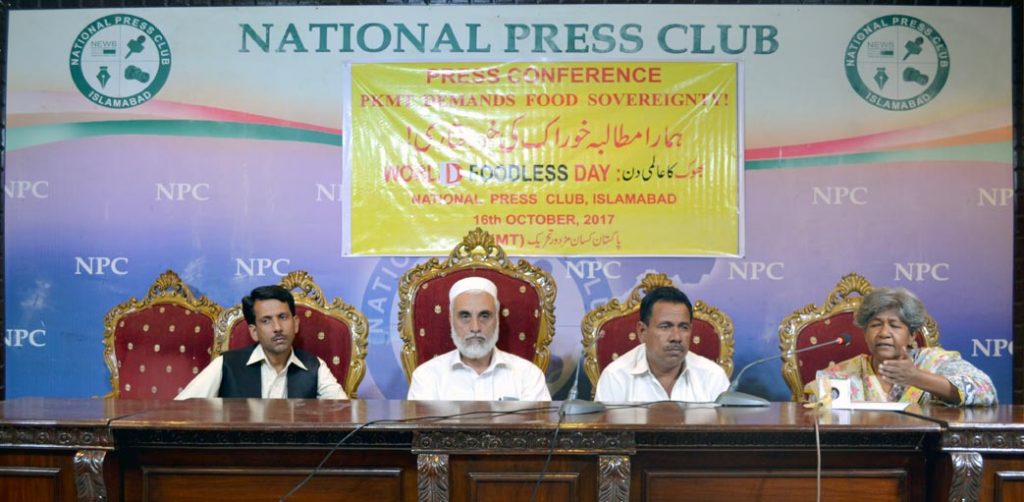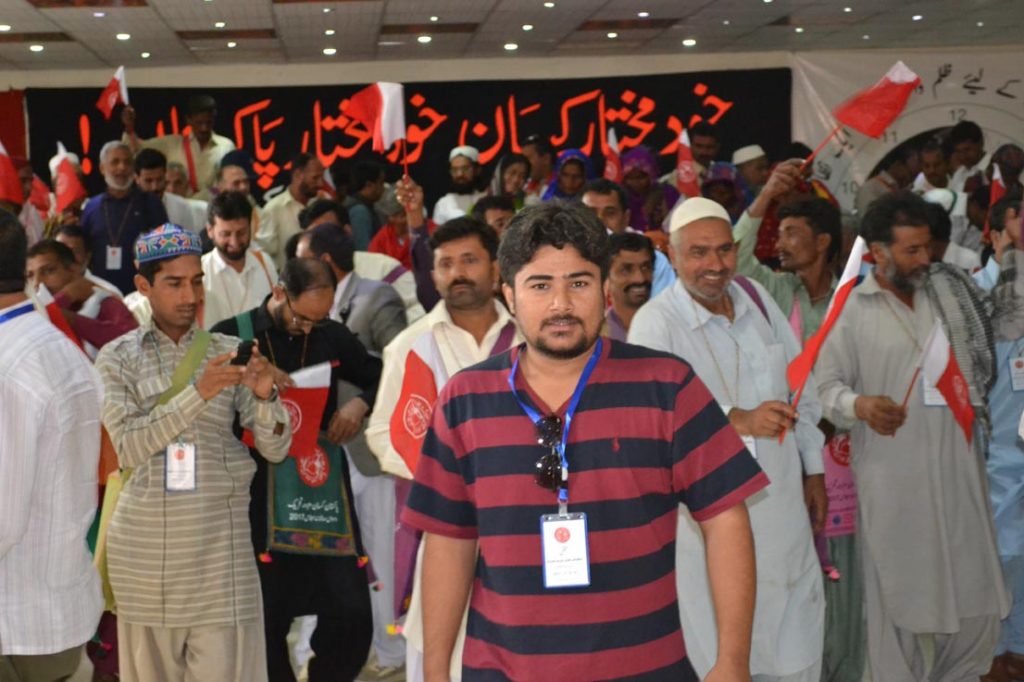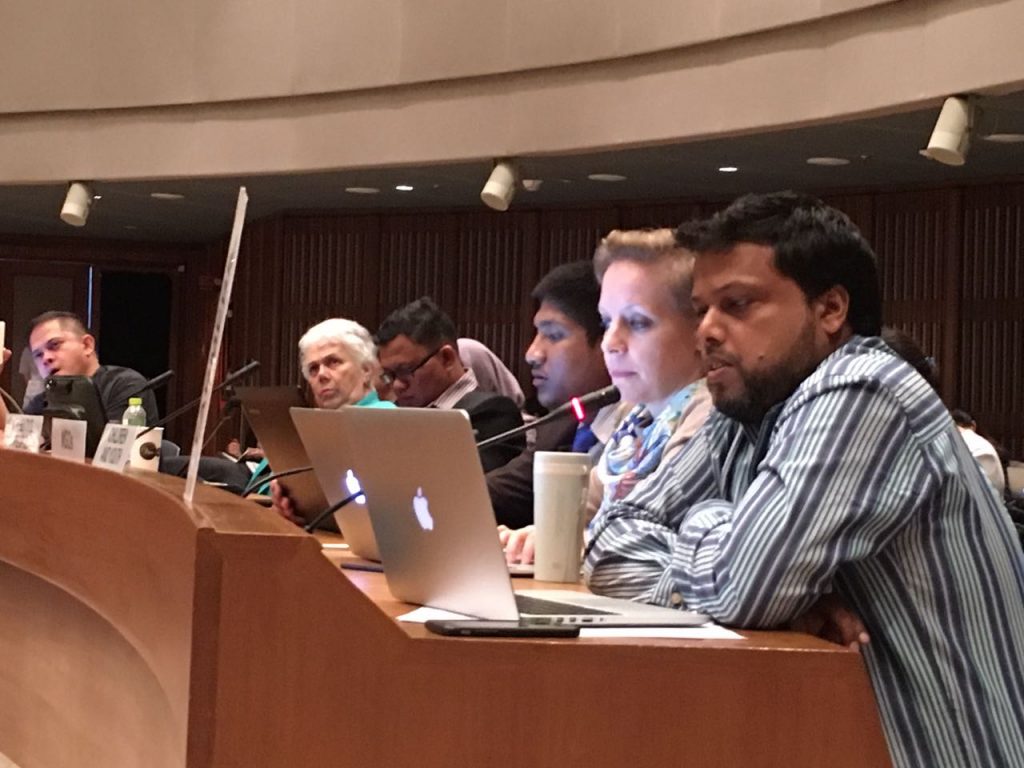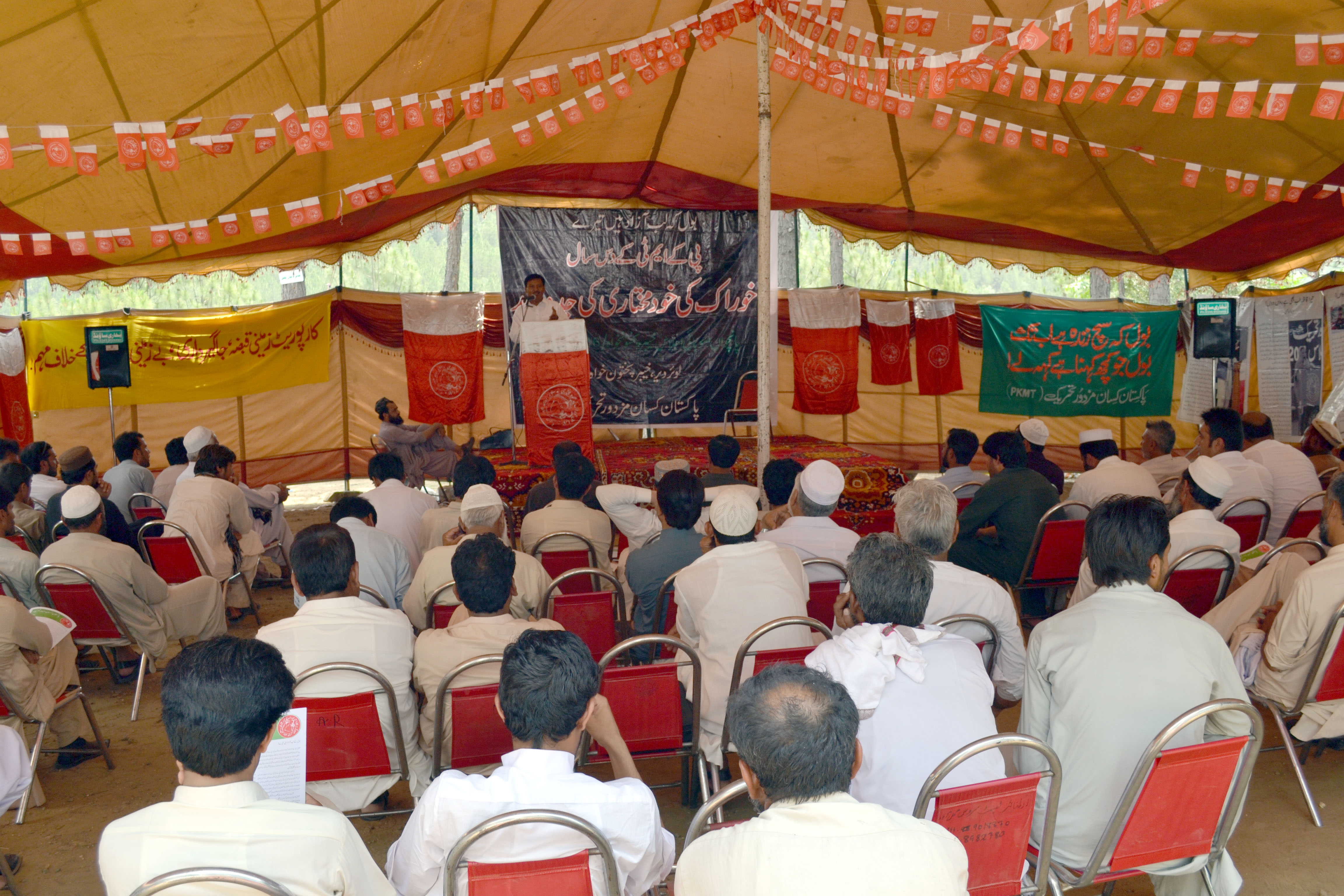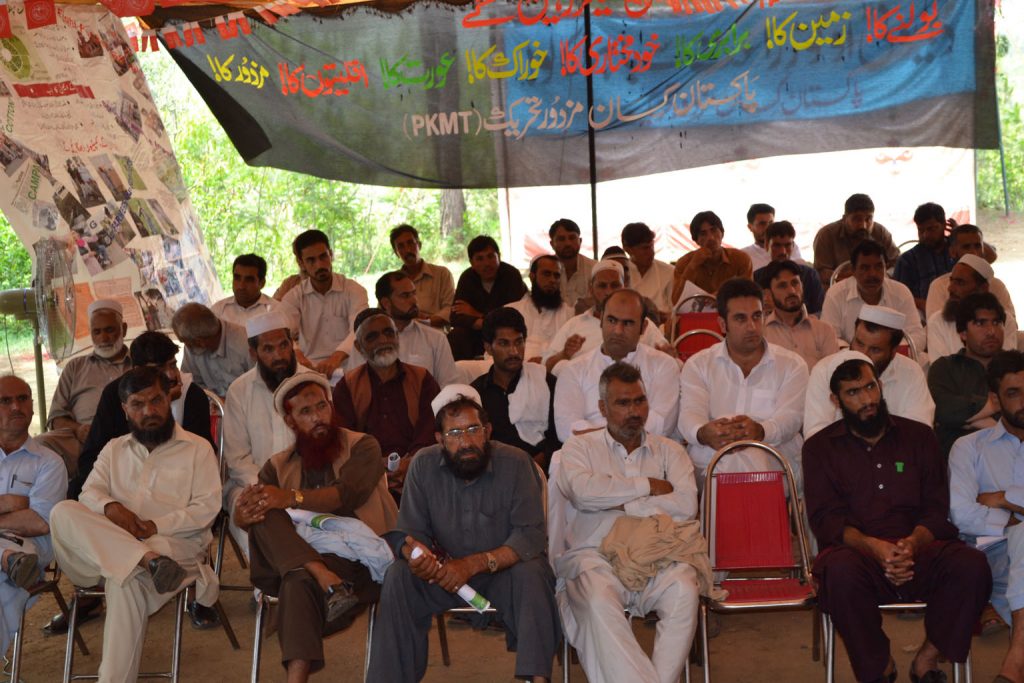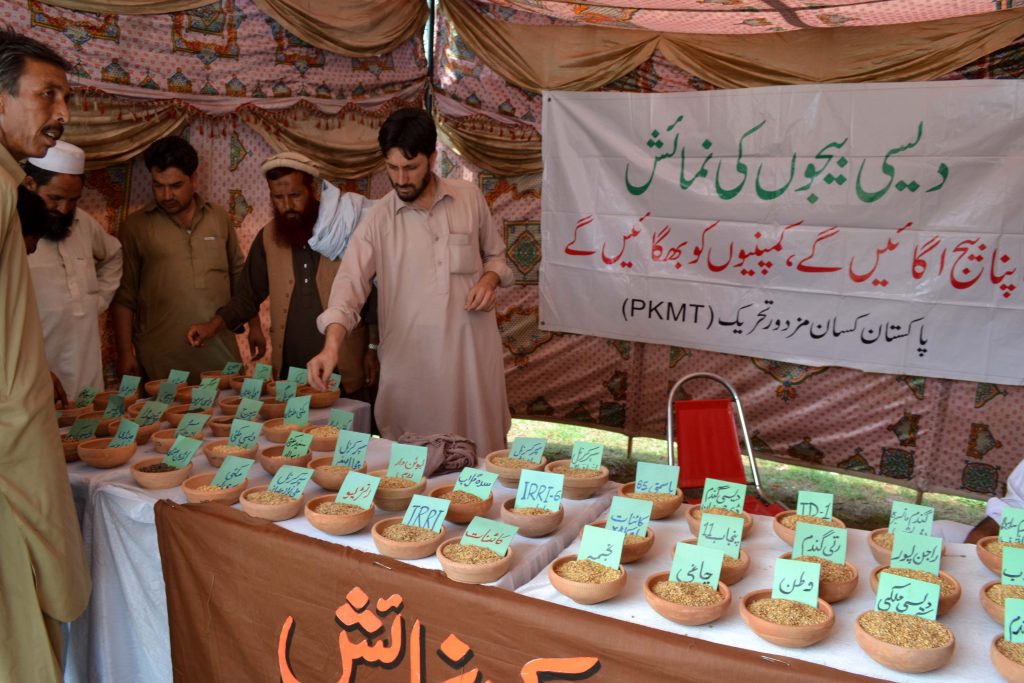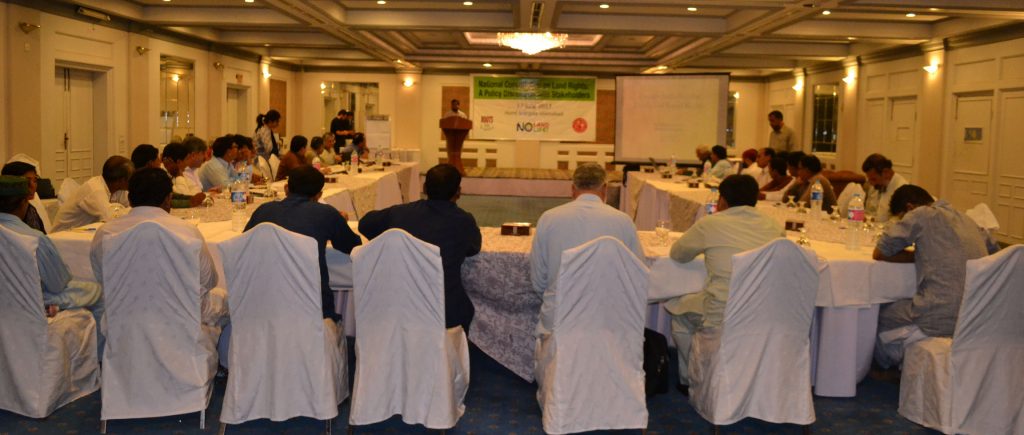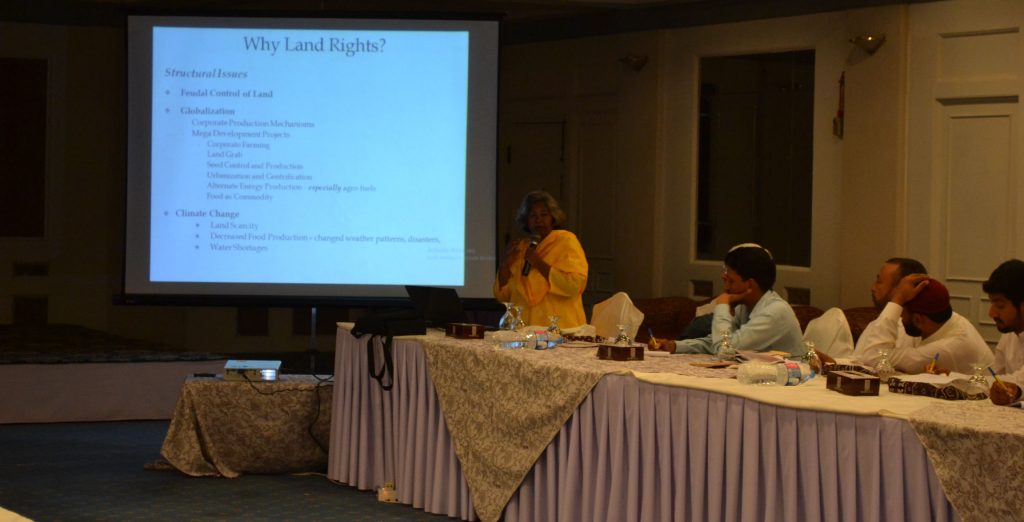Press Release
10, December, 2017
Pakistan Kissan Mazdoor Tahreek and Roots for Equity carried out a protest joining the global protest against World Trade Organization (WTO) by farmer organizations. The protest was held at Ghotki Press Club, Sindh on its 11th Ministerial Conference, to be held 10 -14th December, 2017 in Buenos Aires, Argentina.
WTO, an international intergovernmental organization advocated and advanced by world’s richest capitalist countries, which ensures adaptation of extremely anti-people, anti-farmers global trade rules and regulations in global trade. In third world countries, farming communities considers WTO as a public enemy as it ensures market monopoly of transnational corporations of rich capitalist countries.
Provincial Coordinator, PKMT Sindh, Ali Nawaz Jalbani, District Coordinator, Ghotki Ali Gohar, Raja Mujeeb and other PKMT leaders mentioned that various governments of the world are participating in the 11th Ministerial Conference of the WTO, where once again hegemonic forces have come together to discuss and impose further neoliberal policies for exploitation of the working class and natural resources.
The exploitative policies to weaken the role of government in services like education, health facilities, water, and energy sector are on the agenda as government’s provision of these services takes away the profits of greedy corporations. There are also proposals to cut down third world countries support for their fishery industry, and a diabolical agenda of punishing small scale fisher folks for “illegal, unreported, and unregulated” fishing activities; the aim is to further reduce third world countries already minimal support for their farmers while allowing rich countries to continue their subsidies that allow them to flood developing countries’ markets with cheap agriculture products.
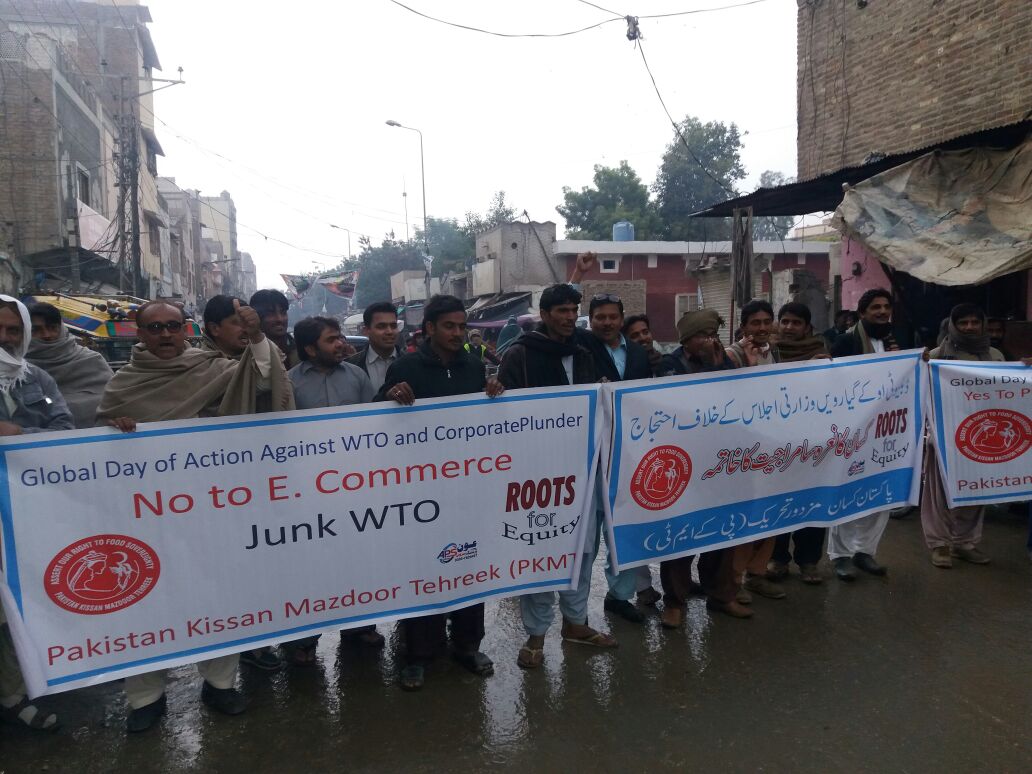
It is critical to mention that at the WTO’s 10th Ministerial Conference, Pakistan bowing down to US pressure, had opposed the Indian government’s proposal for third world countries to maintain public stockholding of food grains. This is shameful in the context of Pakistan, where its populations, especially rural populations, women and children face extreme forms of hunger, and malnutrition. At this point, it is also important to mention the deaths in Thar, which have been reported for the past many years. Another critical agenda at the 11th Ministerial Conference is to enforce monopoly power of high technology companies, enabling them to access public data systems, by-pass customer privacy and protection which will be used to sell to other parties for profit, evading tax payments, and further take away self-employment or other means of livelihood, forcing them to accept even further reduced wages with zero protection and benefits. Pakistan supports these recommendations by implementing E-commerce trade proposals, which helps the hegemony of high tech companies in sectors such as information, retail, technology and media. The seven top corporations in these sectors are US-based and include Google, Amazon, Apple and Facebook.
In countries like Pakistan farmers are facing loss of livelihood, evictions, poverty and hunger; more than two decades of the WTO regulations in agriculture has evoked these diabolical conditions. It is based on WTO’s atrocious coercion the Government of Pakistan has implemented the Plant Breeders Rights Act, and Seed Act 2015. Due to these laws the farmers are unable to save traditional seeds and forcing them to be dependent on agro-chemical transnational corporations. These companies are given a free hand to exploit small and landless farmers pushing them further in the abyss of impoverishment and misery.
Pakistan Kissan Mazdoor Tehreek and Roots for Equity reject WTO, holding it responsible for the destruction of small farmers around the world. PKMT demands, that our government should seek a democratic process, which would enable farmers to adopt self-reliant policies, and exit from these agreements made with WTO. The need of the hour is to show complete resistance against WTO, propelled by plundering corporations, supported by their capitalist countries. No doubt the struggle is to end imperialism!
Released by: Pakistan Kissan Mazdoor Tehreek and Roots For Equity.





